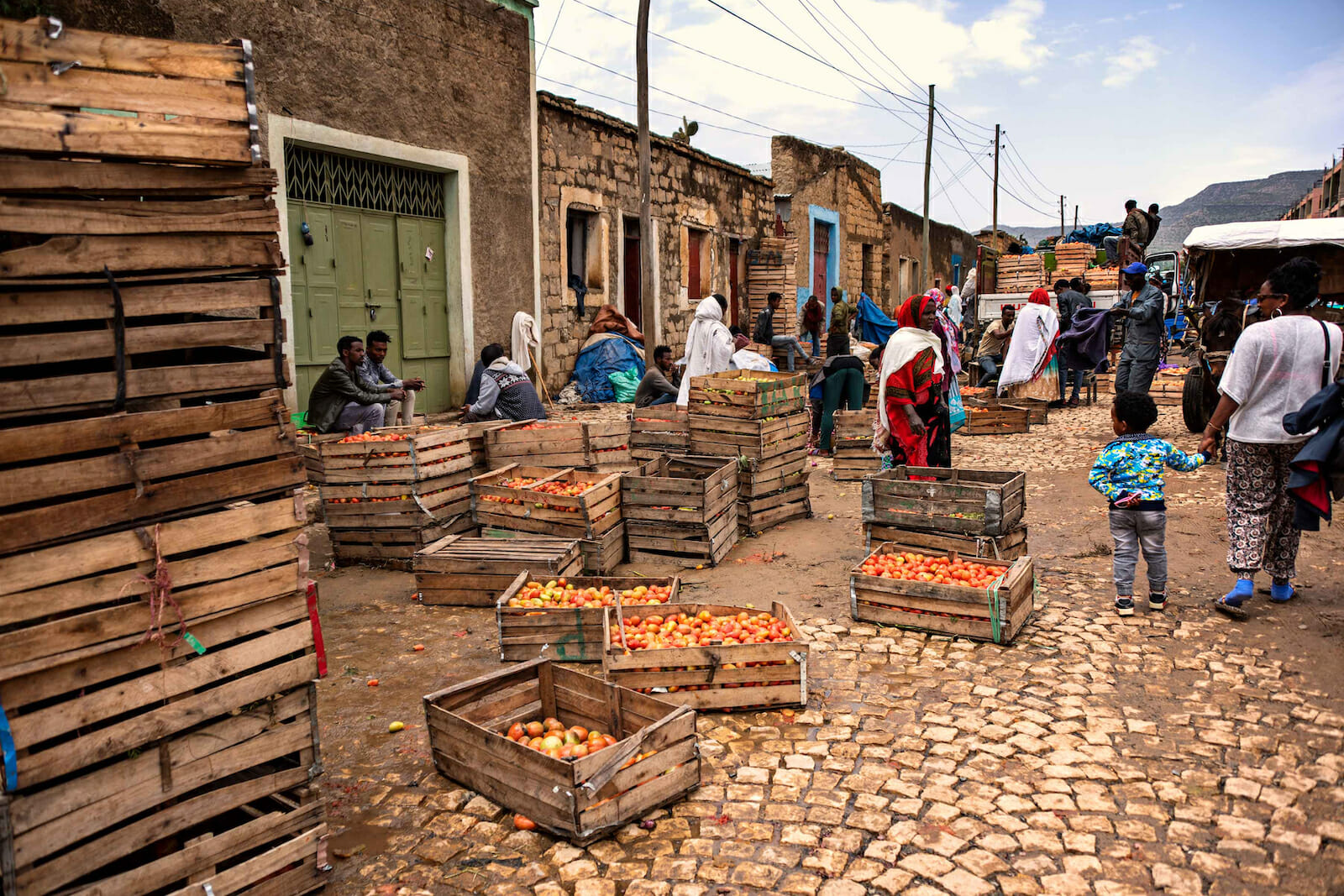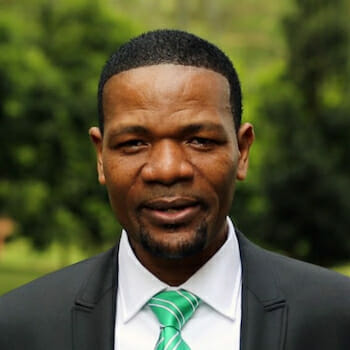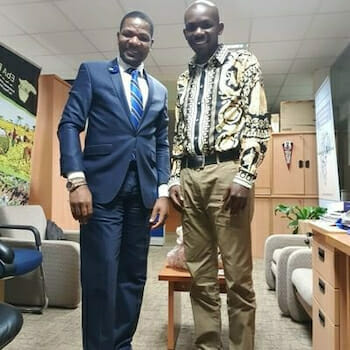
Are Replication and Upscaling a Good Fit for Africa?
African elders in their unique wisdom left us many timeless proverbs. Among those I find most reflective is the following: “When a handshake passes the elbow, it becomes another thing.” This African proverb reminds us to never get too familiar or comfortable with anything. That we must always be on alert and verify all things. “All things” covers even the words we use, and the meanings we ascribe to them.
In the climate change and development field, words like “upscaling,” “out-scaling,” and “replication” are commonplace. But what do these words really mean? It is the near-universal understanding associated with their use, that ought to unsettle us as they can make or break at the same time. In this case, almost synonymous are finance and budgets. Essentially, we are told that money is the key to success. But is money the most significant resource that Africa needs?
Going beyond finance is the key to success in Africa.
Africa is still considered a continent in adversity. The number of hungry and poor continues to increase. If we were to go with the numbers, the 257 million citizens who wallow in hunger every day and night and the over 620 million who are energy impoverished are telling enough. These are not just statistics. These are the stories of people’s lives.
Our economies continue to be the least competitive globally. Our region continues to be the most vulnerable to climate change manifesting in increased droughts and floods plunging millions into suffering nearly every day. In fact, measured by the Sustainable Development Goals (SDGs), Africa is a continent in perpetual crisis.
With these realities, the urgency for remedial steps is unquestionable. “Replication,” which is inadvertently tied to money alone– is not giving a fair return to the continent and this has to do with the high probability of such money-driven approaches alone to overlook context. It is high time that the continent gave as much attention to leveraging on changed mindsets and enabling policy as the drivers of multiplied success to bring impact to scale.
Policy as the right tool for multiplying successes in Africa.
It is said that policy is the biggest driver of change. This is indeed the case because anything that gets anchored to policy automatically gets integrated into institutional DNA for posterity in implementation. Institutions transcend individuals and minimize the direct biases of man that often gets in the way of progress. And any action that is integrated into policy, has the potential for uptake to scale at sub-national, national, regional, and even global levels.
It is urgently important to leverage what works to validate policy with action as it is ground action that informs policy and vice versa. Boardroom policy should not be disconnected from reality. For example, if you take the work that innovative volunteerism youth actors are doing across the continent, they are fabricating solar driers and briquettes. This work they are doing is providing empirical evidence and data.
For instance, they have come up with effective solar dryer designs made from locally available material – that are up to 200% cheaper than imported solutions. The effectiveness and affordability of these dryers provide empirical data to inform practical areas for policies to focus on to enable further up-scaling of such relevant climate actions from a market perspective that ensures longevity.
These improved solar dryer designs are generating data that can be later used by standard organizations in other countries. The solar dryers dehydrate a variety of food items to below the 12% threshold key to prevent aflatoxins. This data will be key to inform standards on the development of an affordable and effective contextual solar dryer that preserves food in line with certain benchmarks. This is the way to go in ensuring policy is informed from the ground to institutionalize what works. This is the direction we must take in bringing impact to scale.
Renewed mindsets are the right tool to bring impact to scale.
A false culture always falsifies development. What are Africa’s cultural values that can be tapped into to bring impact to scale with or without the trillions of dollars we have been waiting for?
Is it only finance that we need to bring impact to scale? The jury is out. “Do not look where you fell, but where you slipped,” this African proverb puts in perspective a fundamental question we must ask ourselves – which is, where did the rain start beating us?
The answer lies in a mindset of materialism that has engulfed us. The timeless wisdom of “no pain no gain,” which never gained roots, is increasingly replaced by a philosophy of “eating where you have not sown, provided you don’t get caught.”
While a skilled person capable of converting challenges into opportunities is the most significant component of wealth globally, materialism has blinded us. We have entrusted Africa’s transformation on material resources, rather than the unlimited potential inherent in our people.
We have failed to prioritize people, as the primary means and end of development. Choosing material resources instead. This is where we slipped. Today, we must revisit how human capital can rightfully become the force of transformative climate action in Africa.
For quite too long, we have focused on bringing finance to scale alone without knowing that to bring impact to scale we need a different approach which centres on tapping into people’s passions and inspiring them to leverage on their skills and get them retooled. Because without skills, inspiration, passion, selflessness, and purpose, finance will take us nowhere. A trillion dollars will not bring impact to scale.
A skilled person, capable, willing, actively and passionately applying themselves to convert challenges into opportunities, is fifteen times the value of natural capital and four times the value of produced capital. The secret to multiplied success in Africa lies in tapping into the region’s sovereign capital – especially its youth with their diverse skills, talents, interests, energies, and aptitudes. Such youth, structurally guided to develop an unborrowed vision, and see themselves as solutions providers, rather than entitled dependents, is where the continent’s focus should be.
With such a selfless mindset, our youth will be the ones to uptake and leverage both local and global ideas, contextualize them, and lead in implementing them. They will be carrying in their human systems, the seed of replication.
This we are already seeing through innovative volunteerism. Youth structurally guided and inspired to drive familiar climate action enterprise solutions – are each doing it differently in their locale, to make the solutions relatable to their context.
For example, waste recovery to domestic energy solutions that have existed for years, are taking different enterprise approaches by different innovative volunteerism youth actors – informed by context aspects of supply chains, market preferences, regulation, convenience, etc. What we see is that the uptake of a solution that is already proven to work, is determined by the guts, acumen of an individual innovative volunteerism youth actor as they navigate through the many variables that constitute their respective context. Hence, nurturing a self-believing, passionate youth, who develop an unborrowed vision to touch lives, is the most significant component of upscaling that can ensure efforts navigate through the uncertainties of context.
The views expressed in this article are those of the authors alone and do not necessarily reflect those of any institutions with which the authors are associated.

